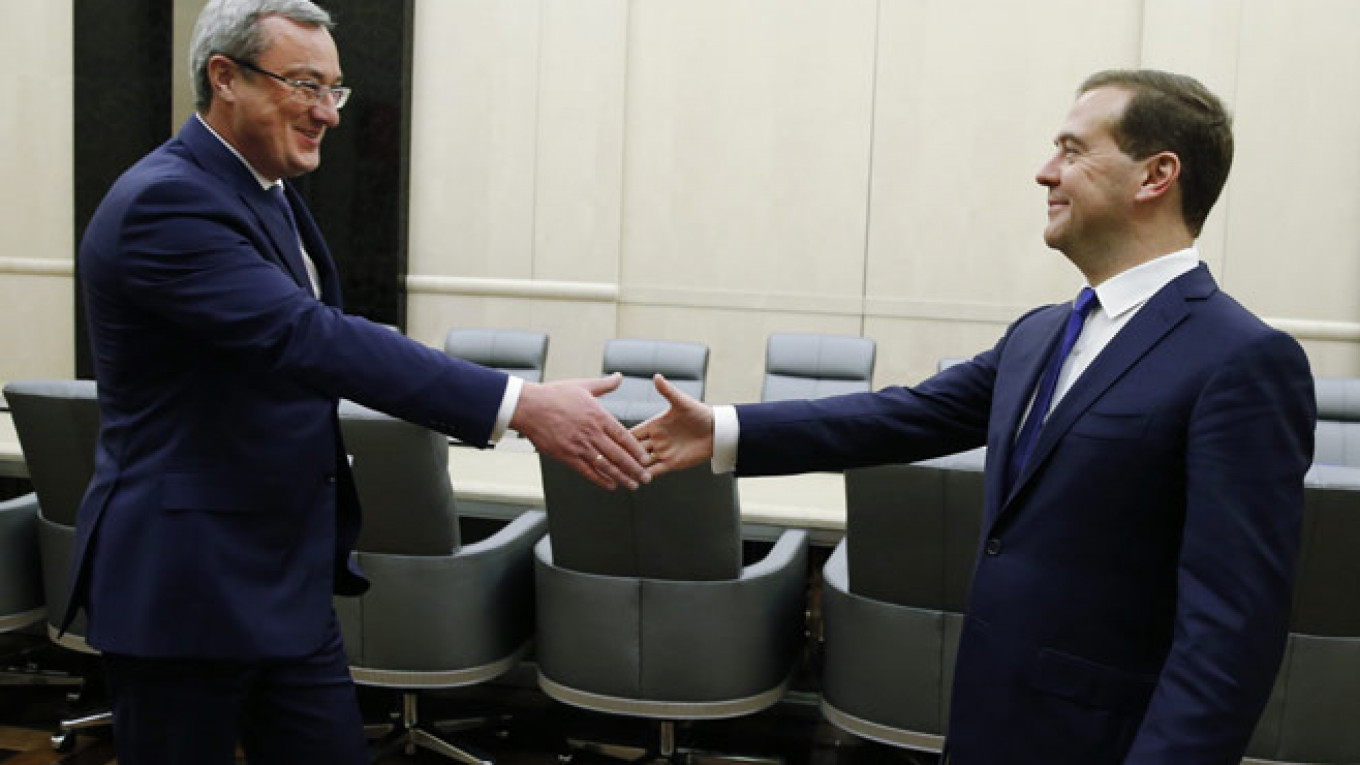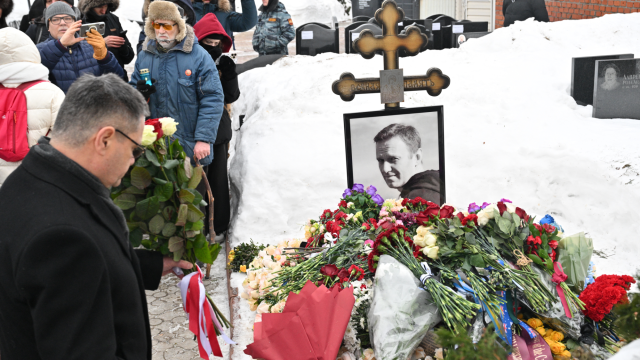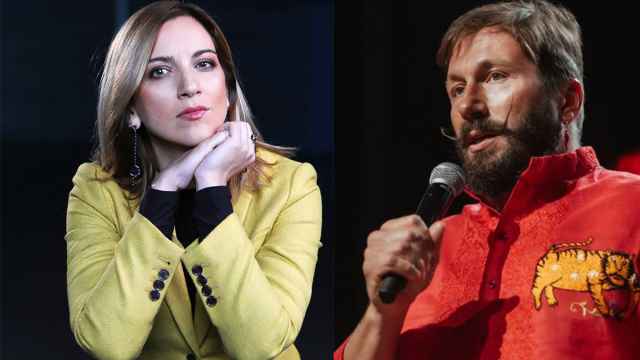The governor of Russia’s oil-rich Komi republic on Saturday became the second regional head in six months to be arrested for corruption in a high-profile corruption case that pundits say could be politically motivated or be part of a struggle for influence among energy companies.
Investigative Committee spokesman Vladimir Markin said Saturday in an online statement that Komi Governor Vyacheslav Gaizer, his deputy Alexei Chernov and 17 other senior officials were under investigation for fraud and organizing a criminal group aimed at illegally acquiring state assets.
On Sunday, Markin said in another statement that Gaizer and Chernov had been charged and that investigators were seeking the arrest of 13 other suspects — including the regional parliament’s speaker Igor Kovzel, deputy head of the regional government Konstantin Romadanov and former Komi senator Yevgeny Samoilov.
Moscow’s Basmanny district court on Sunday ordered Gaizer, Chernov, Romadanov and Samoilov to be kept in detention for two months while the investigation is ongoing, the Interfax news agency reported. A lawyer for Gaizer, 48, said they would appeal the ruling, citing health concerns, a separate Interfax news report said.
State television coverage of raids being conducted in Gaizer’s office on Saturday showed investigators confiscating cash and expensive watches.
Markin said Sunday that investigators and officers of the Federal Security Service, or FSB, had conducted 80 raids at properties in the Komi republic, Moscow and St. Petersburg, and had seized more than 60 kilograms of jewelry, 150 expensive watches worth between $30,000 and $1 million and documents legalizing stolen assets with a value of more than 1 billion rubles ($15 million).
Gaizer, a member of the United Russia ruling party, was appointed governor of the Komi republic by then-President Dmitry Medvedev in 2010.
The accusations lodged against Gaizer follow another high-profile corruption case involving the former governor of the Sakhalin region, who was detained in March on bribery charges. Alexander Khoroshavin was fired from his post for allegedly accepting more than $5.6 million in bribes and faces 15 years in jail.
Russian opposition politician Vladimir Milov suggested on his Facebook page Sunday that both cases were motivated by the economic interests of state-owned oil producer Rosneft and its influential head Igor Sechin.
“Which previous governor was arrested and sacked in the same way as Gaizer? Correct: Khoroshavin,” wrote Milov. “Why? [Khoroshavin] was in conflict with [Igor] Sechin over Sakhalin oil and gas affairs,” he said.
“Komi isn’t just an oil- and gas-producing region, but also the traditional fiefdom of LUKoil, the main remaining competitor of Rosneft in the oil industry. It was no secret that LUKoil traditionally had a strong influence on the appointment of officials in Komi. According to my information, Gaizer, who in the early 2000s became Komi’s finance minister in a flash appointment, was also their protege — at least then,” he said.
Political commentator Gleb Kuznetsov said the arrests of Komi’s top officials evoked 1937 — the height of the Red Terror, as the political purges overseen by Soviet dictator Josef Stalin are known — and were the result of a strategy to keep Russia’s regions toeing the Kremlin line.
“The terror of ’37 wasn’t so much targeted at vocal or dissatisfied ‘political activists’ as at serving officials,” he said.
“The public use of force by the highest authorities against lower-ranking authorities will always be the best tool at the disposal of the former,” he said.
Contact the author at [email protected]
A Message from The Moscow Times:
Dear readers,
We are facing unprecedented challenges. Russia's Prosecutor General's Office has designated The Moscow Times as an "undesirable" organization, criminalizing our work and putting our staff at risk of prosecution. This follows our earlier unjust labeling as a "foreign agent."
These actions are direct attempts to silence independent journalism in Russia. The authorities claim our work "discredits the decisions of the Russian leadership." We see things differently: we strive to provide accurate, unbiased reporting on Russia.
We, the journalists of The Moscow Times, refuse to be silenced. But to continue our work, we need your help.
Your support, no matter how small, makes a world of difference. If you can, please support us monthly starting from just $2. It's quick to set up, and every contribution makes a significant impact.
By supporting The Moscow Times, you're defending open, independent journalism in the face of repression. Thank you for standing with us.
Remind me later.






